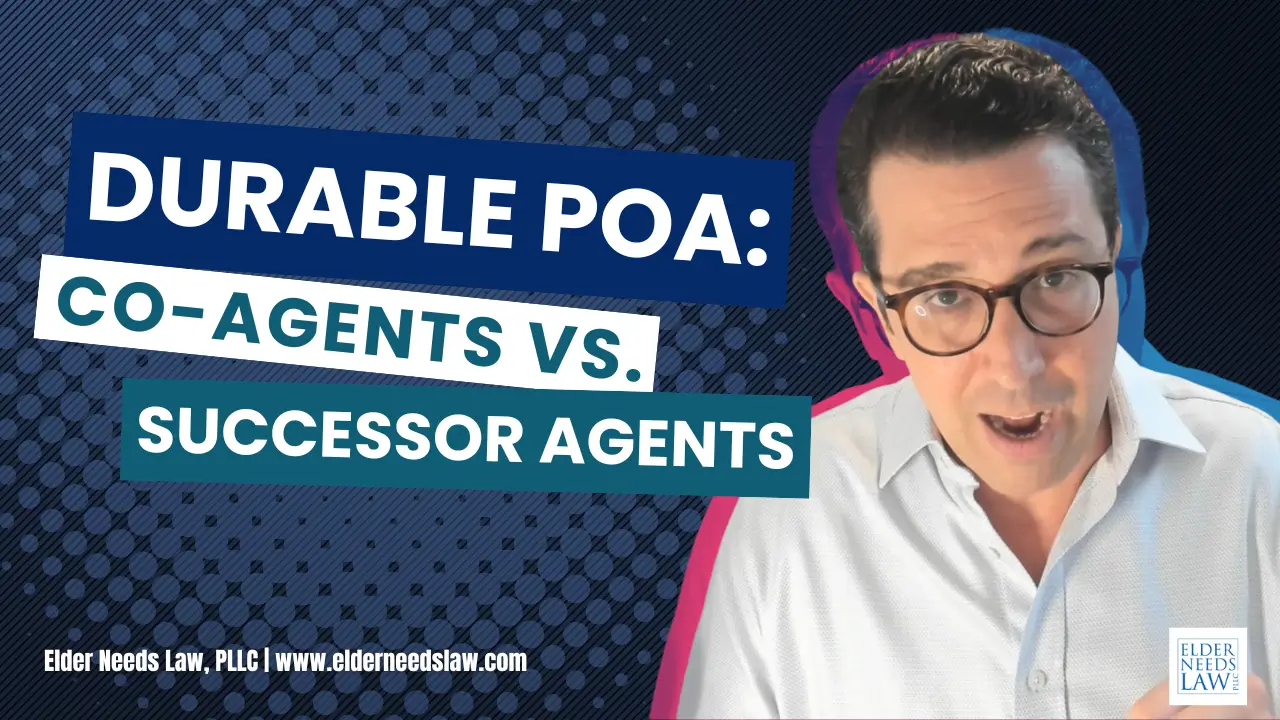Can You Have Both Long-Term Care Insurance and Medicaid?

How do Medicaid long-term care benefits fit into the picture if you already have long-term care insurance that you've privately paid for?
That's what we're going to be talking about today, and this is an important topic - Long Term Care Insurance and Medicaid - because a lot of people think if they have long-term care insurance, then they cannot get Medicaid long-term care benefits and that's simply not true.
Those who have long-term care insurance are always going to be in a better position because it's just money, and more money is always going to give you access to better services.
Qualifying for Medicaid with Long-Term Care Insurance
While you can have long-term care insurance and still qualify for Medicaid, the insurance will affect your Medicaid eligibility in different ways.
What do I mean by that? So essentially, long-term care policies come in one of two general types: reimbursement-type policies and straight-pay policies.
Straight Pay Long-Term Care Policies
The policy might state that it will pay up to $150 a day or $300 a day toward home care, assisted living care, or nursing home care. This payment could last for a set period of time or until a certain maximum value is reached, such as $300,000 or $500,000. This type of policy is generally considered a straight-pay long-term care insurance policy.
With straight-pay policies, after you have met the insurance company's threshold for being eligible for long-term care payments, they just start sending checks. You can use the money for whatever you want.
If you have that type of policy, a straight pay policy, then those monthly checks will be included in your countable income. Meaning, that when you want to be eligible for Medicaid, you have to pass the Florida Medicaid Income Test. They add up your income from all sources combined.
If you have a straight-pay long-term care insurance policy, they're going to add those long-term care insurance payments when determining your income, on top of:
- Social Security
- IRA payments
- Annuity payments
- Rental payments
Long-term care will be included in that calculation, and we have to either likely utilize what's known as a qualified income trust, or if you're in a nursing home, you might need an income trust as well, but that will be more money that goes straight to the facility.
Reimbursement Long Term Care Insurance
The other type of long-term care policy, which is a little bit more common, is the reimbursement-type LTC policy. It's a very similar concept to the type of policy described above. Reimbursement LTC policies might pay $150 a day or $300 a day," again for a period certain or until you've reached a certain value. But the difference is here, you have to spend the money first, and then the policy will reimburse you (or pay 3rd parties, i.e., directly to the ALF or home care agency).
This is what is known as a reimbursement policy. If it's a reimbursement policy, the payments are not counted in the Medicaid eligibility income calculation.
Coordinating Medicaid and Long-Term Care Insurance Coverage
If you're receiving $150 or $300 per day, and the cost of your home care or assisted living care exceeds that and exceeds your income from other sources, THEN Medicaid Waiver benefits can come in and cover the difference.
Now, Medicaid does want to be the payer of last resort, meaning if you have other ways of paying for long-term care, they want you to use those first. But that doesn't mean you can't also have your income and long-term care insurance payments and still not need more care. Because if you need more care, then you can use Medicaid to cover what is not otherwise covered by your income and the long-term care insurance payments.
Long-Term Care Partnership Policies
There's one other concept that I think is worth talking about, which is if you have a long-term care insurance policy that qualifies as a partnership policy. You have to ask your insurance company whether they are a Medicaid partnership plan or Medicaid partnership policy. If so, then you're essentially able to get credit. It's an incentive for you to use your long-term care insurance before applying for Medicaid.
For example, where Medicaid usually says you can only have $2,000 in accountable assets if you have first used up some of your long-term care insurance, let's say you've used $50,000 of your long-term care insurance policy, now you're allowed to have $52,000 in the bank because you used long-term care before you went to Medicaid. And so these partnership policies, although they're very rare - we run into them very occasionally - can also be an added benefit.
Get Help with Medicaid Planning in Florida
Medicaid planning is complicated stuff. If you have long-term care insurance, but you're saying to yourself, "This is still not going to be enough to pay for my or my loved one's needs at home or in a facility," we can still help them get onto Medicaid anywhere in the State of Florida.
If you are in Florida or your loved one is in Florida, and you want to talk about anything Medicaid planning, estate planning, or probate-related, we are a statewide elder law firm, and we're here to help. Contact us today for a consultation.







